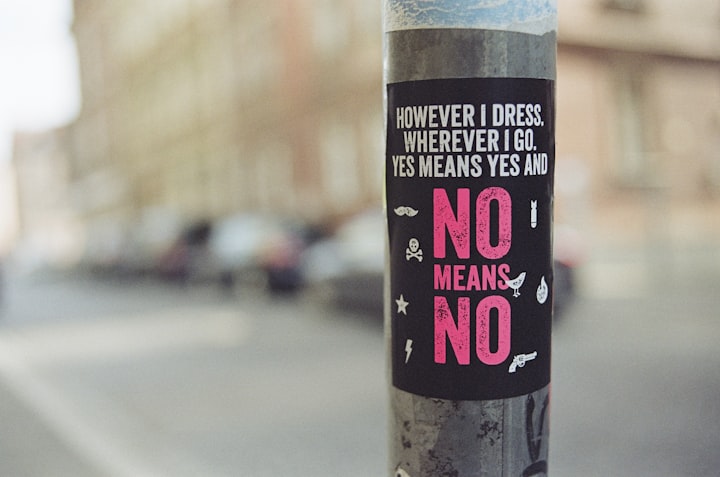
Originally written on Medium in June 2018...
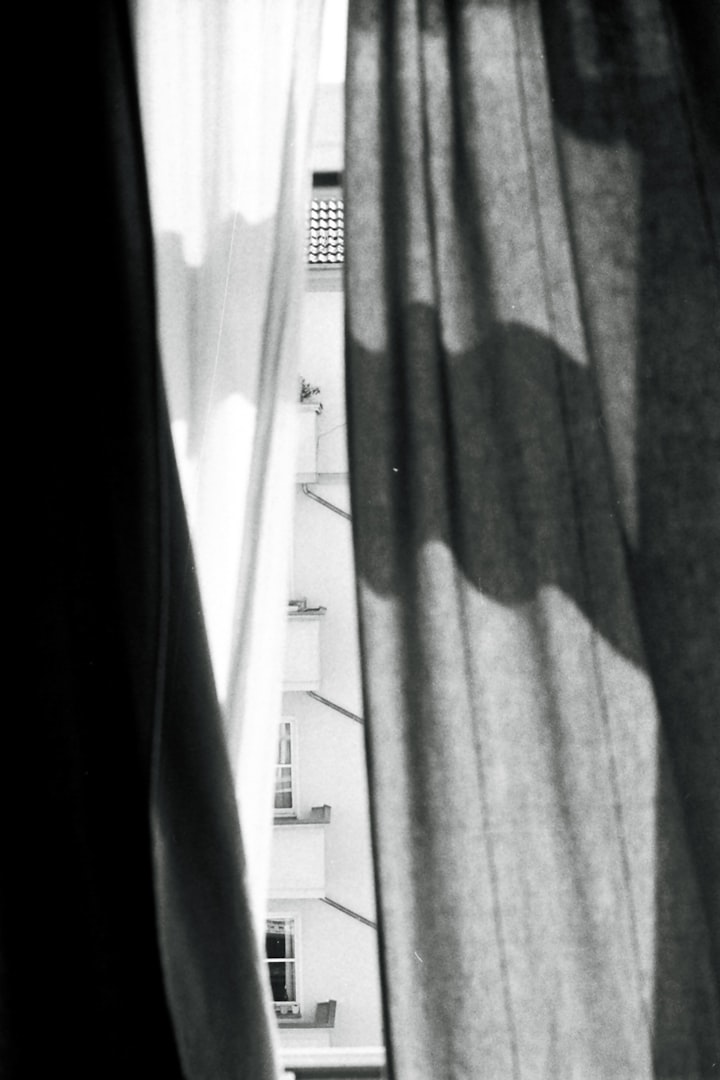
There has been a lot of talk about the #MeToo Movement.
Some, including Harvey Weinstein, Kevin Spacey, Catherine Deneuve and Vladimir Putin, have decried it as a 'Witch hunt', a 'Conspiracy' or - ironically - 'insulting to women' on the basis that it treats them like children incapable of setting boundries.
Here's a hint: #MeToo is less about setting boundries than it is about calling out the people who ignore said boundaries, then use their power and influence to get away with it.
Some men, and even a few women, have posted angry online rants about how men will no longer be able to talk or shake hands with a woman without fearing accusations of harassment. Others claim 'mixed signals' and 'toxic femininity' are ruining lives.
Here's another hint: If you can't tell the difference between basic interaction with someone of a different gender and sexual harassment, maybe you're part of the problem.

That is not to say that some socially-inept people can't make well-intentioned remarks that come out creepy, or not recognise when someone is uncomfortable around them, but there is a key difference. When a socially-inept person makes such a mistake and has it pointed out, they are most likely to be horrified, instantly apologise and back off.
Those who do it on purpose are more likely to become indignant and cry persecution.
Whether you think the #MeToo movement goes too far, or if you believe it is long overdue and vital, there is no denying the facts: out of your immediate circle of friends and family, statistically-speaking, at least one will have been the victim of assault. You may not know, it may have been years in the past, but every time you dismiss the movement or blame the women who are speaking up, you lose a little of their trust. If one of them is assaulted in the future, they will think twice in coming to you for help, or even in telling you at all.

I remember the first time I was sexually harassed.
I was 13, nearing the end of my first year of high school.
I had detoured down a residential street on my walk home, rather than following the main road home because I wanted to check on a friend who had been absent that day. I'd been there before, many times, and knew the route like the back of my hand, and it was the middle of the day. It wasn't as though I was walking down a dank alley at night in an unfamiliar part of a bad neighbourhood, a place where news-stories and media said attacks happened. I knew not to talk to strangers, and I'd grown up in the area. What could go wrong?
I was on the last stretch of the street not visible from the main road when a man approached me.
I moved from the sidewalk proper onto the grass, so that he could pass me easily. I didn't say 'hi', I didn't smile, I didn't acknowledge him in any way other than stepping to the side.
More than twenty years later, I can still remember his words and actions, as clear as if it was yesterday. "Hey, little girl. You want my dick, don't you?"
He reached down to his pants, and I didn't stick around to see what he was going to do. I've never been a runner, but I was three blocks away before I stopped to catch my breath. I speed-walked the rest of the way home.
When I arrived, I asked my mum if we could talk privately, and told her what happened. She hugged me, made sure I was unhurt, and called my grandparents to stay with my sisters until Dad got home.
She took me to the police station to report what happened. I was still young and naive enough to think that the police could solve everything, and hadn't seen any statistics on how often no action is taken against the culprit.

Compared to countless others, I was unspeakably lucky.
My assailant was a stranger, not someone I knew and trusted. He didn't know where I lived, and odds were that I would never see him again.
My parents and support network believed me, as did the officer who took my statement. No one asked if had led him on, if I had been drinking, if I had misunderstood his intentions.
I was allowed to stay home for the last few days of school. One of the teachers from the PD/H/PE department, who doubled as a girl's advisor for my year, called to check on me, and to make sure I knew that it wasn't my fault and I wasn't alone. She had been a rape victim herself, and talking with her let me stop feeling like a fake, somehow, because my first encounter with sexual harassment hadn't left any visible marks. It was the day I learned that many of our deepest and most painful scars are invisible.
(The next year, my parents shelled out for mobile phones - this was the 90s, and almost no teenager I knew had their own mobile - and a school bus subscription, though I didn't make the potential connection until years later.)

---
I remember the second time I was sexually harassed.
It was less than a year after the first instance, when a boy in my class asked me out, and didn't react well to being turned down.
There wasn't anything really objectionable about him; he showered regularly, had good skin and a ready smile, and was mid-level popular. Most 14-year-olds probably would have accepted.
I didn't.
I knew nothing about him beyond his name and the description above. We had nothing in common, and he hung out with the people who made a point of teasing me. I wasn't opposed to the idea of having a boyfriend, but I didn't think that we'd be a good fit, and I wasn't interested enough to give it a shot for the sake of being able to say that I was dating someone. I turned him down.
That was when I learned his biggest flaw: He didn't take 'no' for an answer.
For two months, he asked me out every time he saw me. I'm not talking once per day, I'm talking every single class that we had together. I lurked outside the staffroom until the teacher emerged, rather than waiting in line and trying to ignore his accusations of breaking his heart.
Mutual friends were convinced to try and persuade me, urging me to give him a chance, telling me that I was being selfish and unfair. Peer pressure might work on a lot of teenagers, but in my case, it only made me dig my heels in.
Sheer bloody-minded Spite has always been my superpower.
His friends escalated from teasing to outright bullying, to make him look better by comparison. I became very well acquainted with the library, and spent lunchtime with a couple of senior girls who had adopted me the previous year and had no problems with closing ranks and telling him to clear off or be squashed like a bug.
This was when I learned how the systems meant to protect women from harassment routinely fail them.
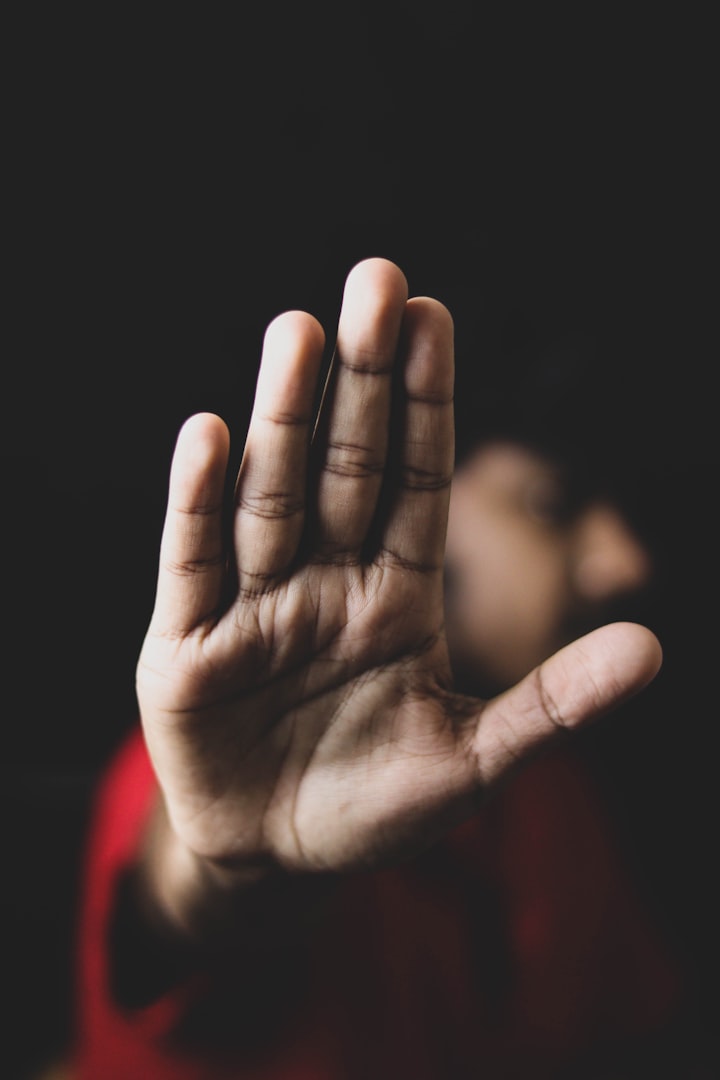
I lost track of how many times I talked to the Vice Principal, supposedly in charge of preventing bullying. I promptly discovered that not only were they woefully inept at that part of their job, telling me to just ignore it until they stopped, but also tended toward victim-blaming. She told that it wouldn't be that much of a hassle to just say yes.
Hint: Women who get into relationships with men who harass them don't live happily ever after. They become a statistic.
I sat front-and-centre in class, where the teacher couldn't miss him trying to harass me during class. I'd happily take the detention for disruption. I spent lunch in the library if my older protectors weren't around, since the librarian liked me and would crack down if he tried any noisy dramatics to pressure me. I discussed the possibility of home-schooling or switching schools with my parents. I even considered asking my male friend to pretend to be dating, but decided against it.
(We'd spent the past two years pointing out that we weren't dating to everyone who couldn't take a hint, and I didn't want to raise false hopes.)
By the end of two months, I was worn down, and finally told him that I'd agree to a date if he agreed to stop asking.
He said that he didn't want to date me anymore, he just wanted me to admit that I wanted him. I don't know if that was said as a salve to his pride, or if he was serious, but I was furious.
He'd made my life a living Hell for two months, because my suffering was preferable to admitting that there was one girl in the world who didn't want to date him.

I switched schools later that year, and spent the rest of my schooling in a Private girl's school, where I mostly hung out with the Special Needs class my twin was enrolled in. They welcomed me easily enough, since I knew most of them through birthday parties and sleepovers, and unlike my classmates, didn't constantly ask when I was going to get a boyfriend or what male celebrity I wanted to sleep with.
(The answer, for anyone who cares, was that Legolas, Oliver Wood, Eomer, Briar Moss, Obi-Wan Kenobi and Domiton of Masbolle gave me butterflies in my stomach, but Orlando Bloom, Sean Biggerstaff, Ewan McGregor and Karl Urban did nothing for me. My taste in men at that point could be summed up as 'pretty, fictional and magical/armored. Two of those things are still relevant in who I'm attracted to, but there are exceptions.)
Looking back, part of my discomfort with such topic probably stemmed from my Asexuality, something I didn't find a name for until years later. The early knowledge that sometimes men didn't accept refusal certainly didn't help, though. Fictional men who respected women were so much nicer to fantasise about.
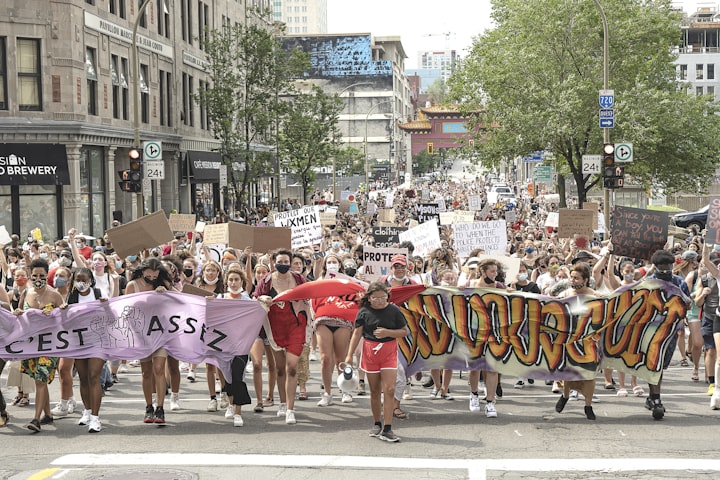
After leaving school, I worked in female-majority professions, and rarely socialised outside of family and a small group of (female) friends. When I finally expanded that social circle, it was to a re-enactment group, where everyone, male and female, was very good at taking no for an answer.
The girl you hit on in the tavern tonight may be the one cooking dinner tommorow, and if she isn't, she probably knows them, and there's a better-than-60% chance that she's got a sword in her tent.
In almost ten years in that group, I've flirted and formed many wonderful friendships, but had someone try to keep flirting after being refused exactly once.
They stopped in a hurry when the table was quickly surrounded by a number of people in armour, male and female alike, all wearing "Is This Guy Bothering You?" expressions.
The overarching rule of the society is "Don't be a jerk". People who ignore that rule are quietly taken aside to have their unacceptable behaviour called out, which usually solves the problem. The 60/40 chance that the girl you're hitting on tonight might end up being the one kicking your backside all over the tourney field in the morning probably helps, too.
Women talk to each other, and if the one in front of you doesn't wield her own sword, she has plenty of friends who do.
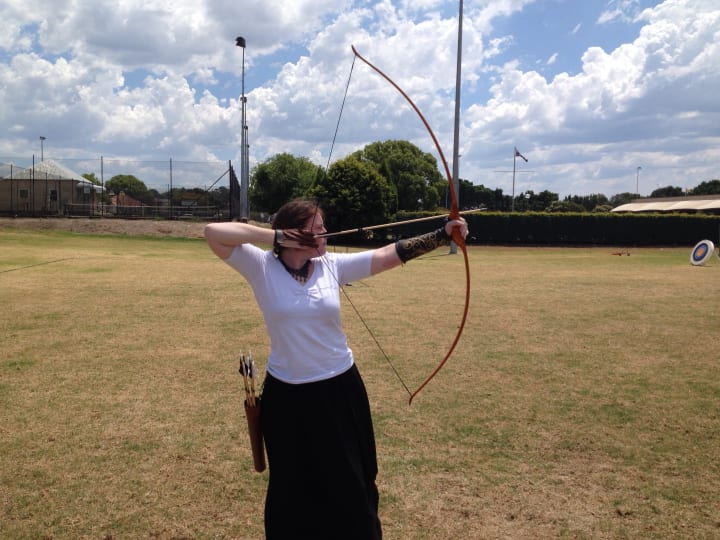
The third time I was harassed was in April 2018, the incident that prompted me to write this piece.
My current workplace is fairly evenly split, gender-wise. On the rare occasion that one of the guys starts leaning a little too much toward 'bloke jokes', a five-minute conversation on why said jokes are uncomfortable/offensive/inappropriate was enough to get them to rein themselves in.
A little over two months ago, we had an influx of new workers. Most of them were fine, for all that I wished they would get out of the habit of waiting for someone to tell them what to do, and we got on fine.
One of them, I avoided like the plague.
He always stood too close, even when there was an entire empty room. He was overly familiar, constantly remarking on my looks and how I would make a wonderful wife one day and how I should have kids already. Now, I'm notoriously oblivious to when someone is flirting with me, but I caught on quickly in this case. That it took a further two shifts (I used up the last of my non-med-certificate sick days to skip out on three more shared shifts) and a candid picture that someone caught of me and my Trans male then-partner before he backed off, says a lot.
Nonetheless, I let it go.
He'd backed off and hadn't approached me again (my going out of my way to avoid him probably helped), and why put myself through a round of he-said she-said with a side-helping of accusations of racism when there were plenty of other things for me to report him for? I wasn't the only one sick of doing half of his work along with my own load, and in that, unlike claims of harassment, I would have other voices backing me up.
Two weeks later, a female co-worker asked me for advice, telling me that the same worker I had problems with had propositioned her. She had pointed out that she was married, and he had actually told her that her husband "Didn't need to know."
I asked her permission to talk to our supervisor about it, since she was too nervous to do so. Even in the midst of her outrage, she was minimising, trying to convince herself that it wasn't as bad as she was making out, that there was no need to make a big deal. She was from a culture that emphasised the role of women as meek, accommodating, gentle and kind, never making waves and always supporting the men in their lives, be they family or friends and co-workers.
Halfway through my explaining to the supervisor what was going on, another female co-worker arrived for their shift. The first words out of their mouth: "Wait, he pulled this on you guys too?"
The informal report suddenly turned into a spontaneous official meeting, with our supervisor probably wishing he had stayed home.
Again, I seemed to have suffered the least of it. The first co-worker was terrified of doing night-shifts, because he lingered over his end-of-shift notes, and during that time, it was just her and him in the tiny office, the Residents of the care facility all in bed and incapable of getting up without help, and since she had the overnight shift, she couldn't simply leave as soon as the evening shift notes were done.
The second co-worker had made her boyfriend promise that he would always have his phone charged and with him when she was on shift with the male co-worker in question, because she needed him to be able to respond immediately if she speed-dialed him for rescue.
As mentioned above, I had used up all of my sick days that I did not require a doctor's certificate for, in order to get out of being on the same shift as him.
Our supervisor was horrified, and promised to talk with the manager and our creep of a co-worker.
As far as I know, he claimed 'cultural differences' and 'racism'. He was on an official final warning, but wasn't even removed from being on the same shift as us, until he left and got a better job.

Let that sink in.
Three women came forward to say he was harassing them, over a long and sustained period, all previously under the belief that they had been the only ones. All three stated, in clear and undeniable terms, that they felt threatened by him. All three cited specific instances and examples. All three had seniority and had been working there longer than the harasser.
Action was easily available, such as moving him to a different shift, or even to a different facility. It wasn't as though we had a shortage of different places for him to go.
Instead, he claimed that he was the real victim, and his right to not have his career affected was more important than our right to feel safe in our workplace.

At its core, the #MeToo movement is about standing up, letting other victims of harassment know that they are not alone, and calling out the people who think that their privilege sets them above consequences.
It started to gain momentum in Hollywood, predominantly white and male, but spread quickly. Men and women alike came forward with stories of bosses, co-workers, mentors, family members and friends who had harassed or assaulted them, and used the flaws in the system to dodge punishment. Women talked about how they were penalised for speaking up, finding solidarity in numbers, and those who had previously thought themselves untouchable started to get nervous.
#MeToo isn't a cure for the problem of workplace harassment. It won't fix the flaws in a system or a society that allows things like this to keep happening. It won't turn back the clock, erase the trauma or the negative effects. It certainly won't make the perpertrators feel genuine remorse for their actions.
But it is a step in the right direction.
A journey of a thousand miles begins with a single step, and right now, #MeToo has the potential to be that step.
About the Creator
Natasja Rose
I've been writing since I learned how, but those have been lost and will never see daylight (I hope).
I'm an Indie Author, with 30+ books published.
I live in Sydney, Australia






Comments
There are no comments for this story
Be the first to respond and start the conversation.